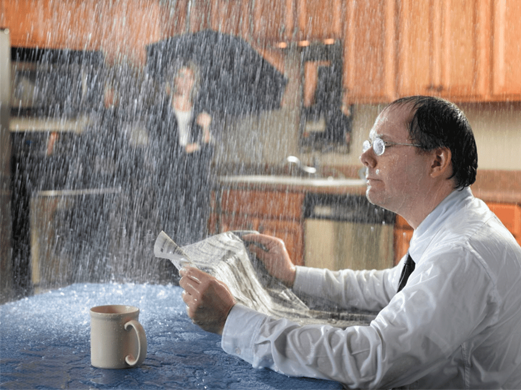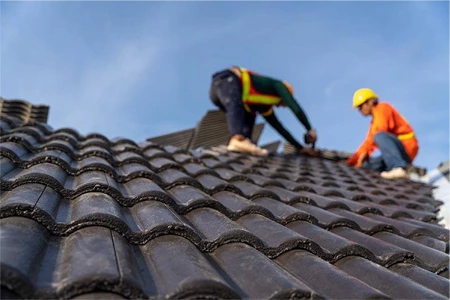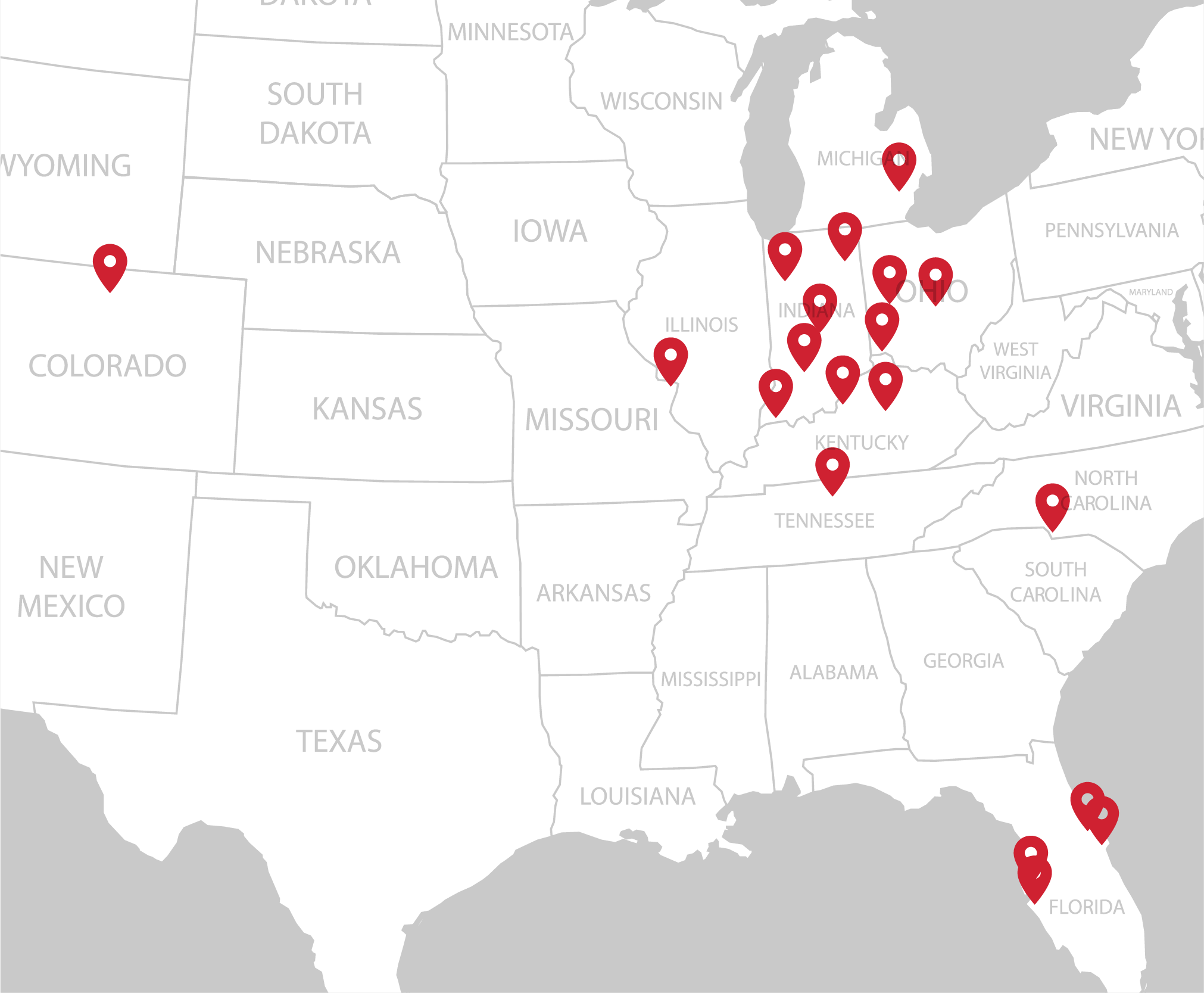Ever stared at a metal roof, glinting under the sun, and wondered if it’s right for your home or business? You’re not alone.
It’s not just about choosing between matte black metal or copper penny shine. It goes beyond aesthetics; into realms of durability, cost-effectiveness, maintenance needs and more.
Will you find peace in its long lifespan or be bothered by the occasional raindrop drumming?
We’re on an exploration here – diving deep into everything from benefits to potential drawbacks. Get ready because we’re about to embark on an enlightening journey through the world of metal roofing for homes and businesses!
The Advantages of Metal Roofing for Homes and Businesses
Metal roofing excels in numerous areas that appeal to property owners seeking long-term value and protection. Its standout quality is unparalleled durability. Engineered to combat the elements, metal roofs provide a fortress-like shield against severe weather conditions. Whether braving high winds, resisting torrential downpours, or deflecting hail, these roofs are built to last, eliminating common issues like shingle deterioration or roof leaking often associated with traditional materials.
Especially in the sweltering heat of areas like Florida, metal roofing is a champion of energy efficiency. Its reflective properties turn away solar radiation, preventing excessive heat absorption and maintaining a cooler, more comfortable interior climate. This thermal efficiency can translate into substantial savings on air conditioning costs during hot summers, a boon for budget-conscious homeowners and eco-friendly businesses aiming to reduce their carbon footprint.
Eco-conscious property owners will also appreciate the sustainable nature of metal roofing. Comprised of a significant percentage of recycled materials, these roofs endorse an environmentally responsible lifestyle. Better yet, at the end of their lengthy lifespan, they can be completely recycled, promoting a cycle of sustainability that’s beneficial for our planet.
Aesthetically, metal roofs are a modern marvel with high curb appeal. They offer a contemporary flair with clean, sleek lines, and come in an array of colors and finishes to match any architectural design. This versatility means you can customize the look to suit your home’s character or your business brand’s visual identity.
The Disadvantages of Metal Roofing for Homes and Businesses
Embarking on a roofing project requires careful consideration, particularly when it comes to costs and materials. Metal roofing, while renowned for its longevity and durability, is often a significant investment upfront. This high average cost is a common hurdle for homeowners and businesses contemplating a new roof installation or replacement. Fortunately, new roof financing options that are consumer-friendly, such as those available from G&W Roofing’s partners in financing, can minimize this concern.
Beyond the financial aspect, potential noise disturbance is another factor worth considering. During heavy rainstorms or hail, metal roofs have a tendency to amplify the sound of each droplet, creating a drum-like cacophony that can disrupt the peaceful ambiance within your home or business. Though modern solutions like sound-dampening insulation and acoustic barriers can mitigate this concern, it’s an additional consideration that might affect your decision.
Furthermore, for those living in hail-prone areas, it’s important to note that metal roofs, despite their robustness, can succumb to cosmetic damage. Hailstones can leave dents, marring the sleek appearance of your roof’s surface. While this doesn’t compromise the roof’s structural integrity, it’s a cosmetic issue that could affect the property’s external aesthetics.
While metal roofing may present initial financial and acoustic concerns, its multitude of benefits—ranging from robust weather resistance to eco-friendly attributes and aesthetic versatility—make it a prime roofing solution. Whether fortifying a family home or enhancing a business property, metal roofing is a worthwhile investment for those prioritizing durability, sustainability, and contemporary design.
Lifespan of Metal Roofing
One of the biggest draws to metal roofing is its impressive lifespan. With proper care and maintenance, a quality metal roof can last up to 70 years. That’s almost three times longer than traditional asphalt shingle roofs which typically need replacing every 20-25 years.
But why does metal last so long? It comes down to durability. Metals like aluminum steel are incredibly resistant against harsh weather conditions including high winds, heavy rains, and extreme heat – common features along Florida’s East Coast. This resistance not only means fewer repairs but also contributes significantly to the overall longevity of your roof.
This doesn’t mean you can forget about maintenance, though. Regular check-ups will make sure that small issues don’t become big problems and extend your roof’s life even more.
Maintenance Requirements for Metal Roofing
Despite the robustness of metal roofing, it’s not completely maintenance-free. But don’t worry. The tasks are simple and can save you a lot in roof repair costs down the line.
Firstly, clean your roof regularly to prevent debris build-up which could lead to corrosion. A gentle hose-down is often enough, a pressure washer will work better if you have one.
Routine inspection for damage such as scratches or dents is also essential because small issues can grow into bigger problems over time. Lastly, while minor fixes might be DIY-friendly, professional services like G&W Roofing’s may be needed for significant repairs.
Remember: Regular care keeps your metal roof at its best.
Comparison Between Metal Roofing and Other Roofing Materials
Metal roofing, often praised for its durability and long lifespan, offers a compelling alternative to more traditional materials like asphalt shingles or clay tiles. But how does it truly stack up? Let’s take a closer look.
When it comes to cost, metal roofs can be more expensive upfront than asphalt shingles. However, they typically last 2-3 times longer which means less frequent replacements. This longevity makes them a cost-effective choice over time.
In terms of maintenance requirements, metal roofs have the edge as well. Unlike other materials that need regular inspections and repairs due to weather damage or aging factors such as rotting or cracking – metal is resistant to these issues. So while there might be an initial investment with metal roofing systems, their low-maintenance nature could save you money down the line.
Environmental Impact of Metal Roofing
Metal roofing is an environmentally friendly selection for residential and commercial properties. One major advantage is its recyclability. Unlike other materials, metal roofs can be fully recycled at the end of their lifespan, reducing landfill waste.
Moreover, they’re energy-efficient. According to a report by the U.S Department of Energy, cool metal roofs reflect more sunlight and absorb less heat than standard roofs, leading to significant savings on cooling costs during hot Florida summers.
The production process for metal roofing also has a smaller carbon footprint compared to alternatives like asphalt shingles because it uses fewer resources and emits less pollution into the atmosphere.
In terms of environmental impact then, choosing metal roofing makes sense not just economically but ethically too – helping us do our bit in preserving our planet’s health.
Environmental Impact of Metal Roofing
Metal roofing is an environmentally friendly selection for residential and commercial properties. One major advantage is its recyclability. Unlike other materials, metal roofs can be fully recycled at the end of their lifespan, reducing landfill waste.
Moreover, they’re energy-efficient. According to a report by the U.S Department of Energy, cool metal roofs reflect more sunlight and absorb less heat than standard roofs, leading to significant savings on cooling costs during hot Florida summers.
The production process for metal roofing also has a smaller carbon footprint compared to alternatives like asphalt shingles because it uses fewer resources and emits less pollution into the atmosphere.
In terms of environmental impact then, choosing metal roofing makes sense not just economically but ethically too – helping us do our bit in preserving our planet’s health.
Making the Decision: Is Metal Roofing Right for You?
Deciding on a roofing material is not a simple, universal solution. Your specific needs and circumstances will heavily influence this decision.
If you value durability, energy efficiency, and are ready to invest upfront for long-term savings, then metal roofing might be an excellent choice. Its high resistance against weather conditions and potential to lower cooling costs make it stand out.
But if initial cost concerns or noise during heavy rain bother you, other options like asphalt shingles may be more suitable. Don’t forget that professional installation is key with metal roofs as improper fitting can lead to leaks or damage over time.
In essence, understanding your priorities helps determine whether metal roofing fits into your plan or not. Consult professionals, such as G&W Roofing, and conduct research to determine the most suitable roofing option for your home or business before making a decision.
FAQ’s About Metal Roofing
What type of metal roofing is best for commercial?
Standing seam metal roofs are an ideal commercial roofing solution due to their exceptional durability, leak resistance, and sleek, professional appearance. Their unique construction helps protect against the elements, making them a practical investment for business-oriented structures.
What is the biggest problem with metal roofs?
The primary issue with metal roofs is the high initial cost, often being significantly more expensive than traditional roofing materials. Additionally, they can be noisier during rain or hail, which may be a disturbance for occupants within.
What is one of the disadvantages of metal roofing?
A notable disadvantage of metal roofing is its vulnerability to denting from heavy objects, such as large hailstones or fallen branches, potentially affecting the roof’s aesthetic appeal.
Is it cheaper to install a metal roof or shingles?
Initially, asphalt shingles tend to be cheaper than metal roofing. However, considering the longevity and lower maintenance of metal roofs, they may be more cost-effective in the long run.
Conclusion
So, metal roofing for homes and businesses – it’s a choice of many colors. It can mean durability that lasts decades and the song of rain on your roof.
Yet, it also means considering higher upfront costs and potential noise issues. Maintenance isn’t too taxing but needs to be consistent.
Metal holds its own against other materials with its lifespan and energy efficiency. Plus, let’s not forget the eco-friendly bonus points!
The decision is yours: weigh these factors carefully before taking a leap into this world of gleaming roofs! If you value longevity, environmental friendliness, and modern aesthetics – then perhaps metal roofing is right up your alley!









